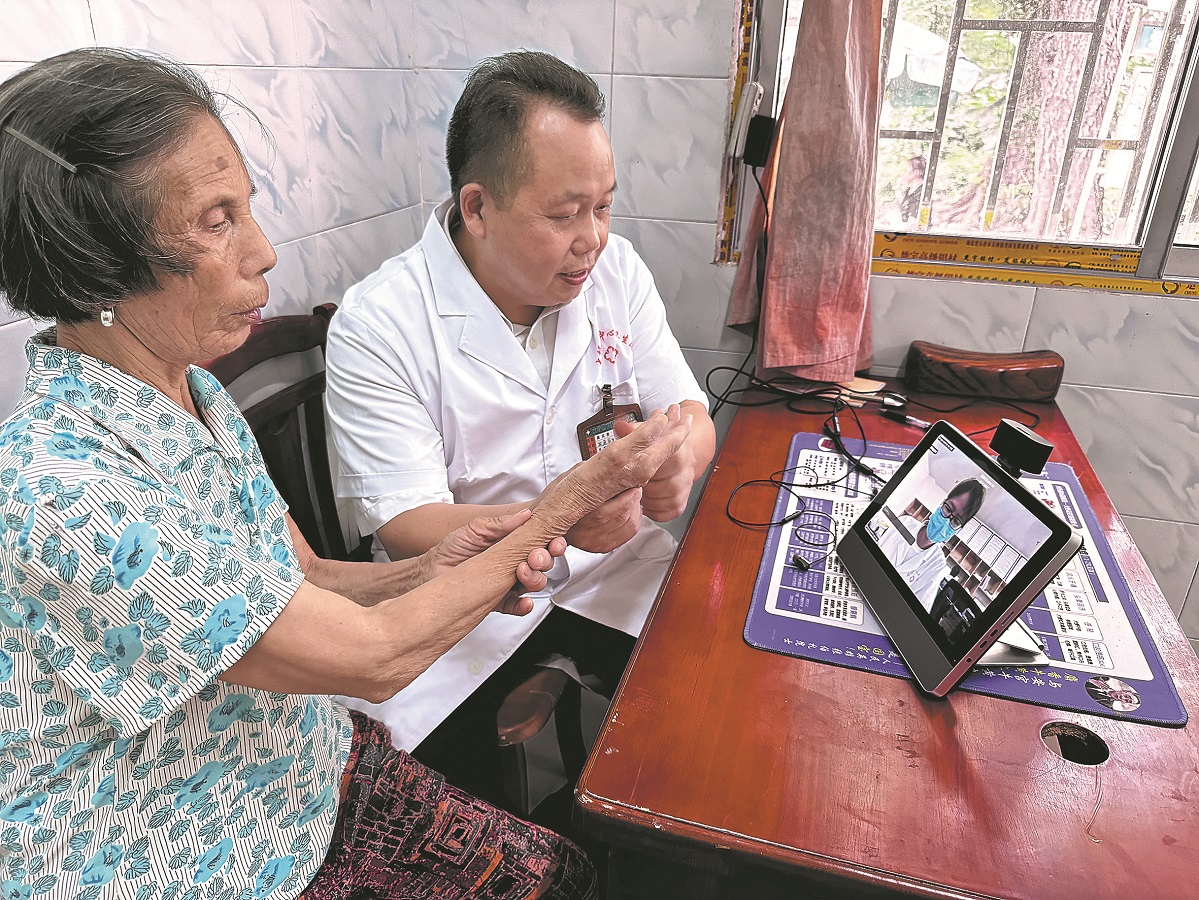AI healthcare solutions make progress, but caution urged
Regulatory control, ethics issues still need to be tackled, experts say


Increased efficiency
The doctor function of the platform offers physicians several tools to enhance their handling of patients.
"It enables intelligent assistant collaboration during consultations, where AI-powered assistants provide real-time dialogue prompts and support parallel patient interactions to boost diagnostic efficiency," Zijing Zhikang, a company that assisted in the development of the program, said in a news release.
For critical decisions, the AI system delivers detailed suggestions, which augment diagnostic accuracy, but preserve the physician's ultimate decision-making authority.
Another feature allows doctors to build digital counterparts after enough interactions.
"The platform automates real-time medical record documentation, significantly reducing administrative burdens and allowing doctors to focus fully on patient care," Liu said. The system also assists with post-consultation follow-up reminders, releases appointment slots, and addresses clinical workflows, he added.
Powering the platform is the Simulacrum-based Evolutionary Agent Learning, an AI system developed by the Tsinghua institute.
Unlike AI trained on real patient data, which risks privacy breaches, SEAL generates synthetic populations that mirror human physiology. Its "digital patients" develop complex conditions from simulated air pollution or genetic mutations, training AI doctors through millions of "crises" no real hospital could ethically stage.
Beijing forum
However, for AI healthcare solutions to be used responsibly and help solve health issues, experts said frameworks for governance, ethical deployment and international collaboration are essential.
These challenges took center stage at a recent China-ASEAN forum, said Zhang Li, chief representative of the Asia-Pacific Medical Technology Association in China.
Experts from around Asia — attracted by China's development of the use of AI in public health — gathered in Beijing for the 3rd Forum on China-ASEAN Cooperation in Public Health from July 2 to July 4, aiming to deepen collaboration on AI-driven public health innovations.
AI usage in the field of medical care raises a wide range of concerns, the forum heard.
Many experts warned expanding the use of AI in healthcare has significant potential risks and ethical issues, such as identifying responsibility when accidents or mistakes happen in the treatment of patients. Misuse of patients' private information is another area that needs scrutiny.
Kidong Park, director of data, strategy and innovation at the World Health Organization's Western Pacific Regional Office, said the health organization advocates a dual approach in addressing the risks posed by medical AI — governance that focuses on value-based and ethical safeguards is key, working in tandem with regulation, which provides a legal baseline and accountability.
"This synergy is vital to harnessing AI's benefits for public health while preventing the exacerbation of health inequities," he said.
- AI healthcare solutions make progress, but caution urged
- Minister calls for stronger efforts to defend peace
- Ten photos from across China: Sept 12 – 18
- Special program marks science month debut
- HKSAR photo exhibition showcases China, Russia WWII cooperation
- Wingsuit Flying World Championship kicks off at Zhangjiajie Tianmen Mountain




































